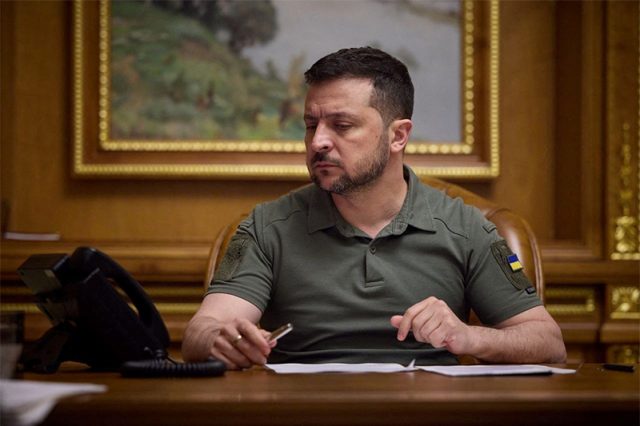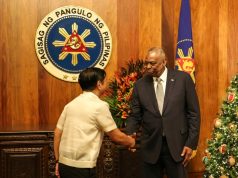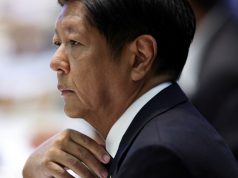
KYIV/BEIJING— Chinese President Xi Jinping spoke to Ukraine’s Volodymyr Zelenskiy on Wednesday for the first time since Russia’s invasion of Ukraine, fulfilling a longstanding goal of Kyiv which had publicly sought such talks for months.
Zelenskiy, describing the hour-long phone call as “long and meaningful”, signaled the importance of the chance to open closer relations with Russia’s most powerful friend, naming a former cabinet minister as Ukraine’s new ambassador to Beijing.
Xi told Zelenskiy that China would send special representatives to Ukraine and hold talks with all parties seeking peace, Chinese state media reported.
Zelenskiy said in an evening video address that there was “an opportunity to use China’s political power to reinforce the principles and rules that peace should be built upon.”
“Ukraine and China, like the absolute majority of the world, are equally interested in the strength of the sovereignty of nations and territorial integrity,” he said.
Zelenskiy also said Xi had expressed “words of support” for the extension of a deal to export Ukrainian grain from its Black Sea ports. Moscow has said the pact will not be renewed beyond May 18 unless the West removes obstacles to Russian grain and fertilizer exports.
Xi, the most powerful leader to have refrained from denouncing Russia’s invasion, visited Moscow last month. Since February, he has promoted a 12-point peace plan, greeted sceptically by the West but cautiously welcomed by Kyiv as a sign of Chinese interest in ending the war.
China will focus on promoting peace talks, and make efforts for a ceasefire as soon as possible, Xi told Zelenskiy, according to the Chinese state media reports.
“As a permanent member of the UN Security Council and a responsible major country, we will neither sit idly by, nor pour oil on fire, still less seek to profit from it,” Xi said.
The White House welcomed the call but said it was too soon to tell whether it would lead to a peace deal.
French President Emmanuel Macron’s office said he had pushed Xi to hold the call with Zelenskiy during a visit to Beijing this month.
No peace talks in sight
The 14-month war is at a juncture, with Ukraine preparing to launch a counteroffensive following a Russian winter offensive that made only incremental advances despite bloody fighting.
There are no peace talks in sight, with Kyiv demanding Russia withdraw its troops and Moscow insisting Ukraine must recognise its claims to have annexed seized territory.
“There can be no peace at the expense of territorial compromises,” Zelenskiy said in a Twitter post on Wednesday.
“The territorial integrity of Ukraine must be restored within the 1991 borders.”
Ukrainian officials have long urged Beijing to use its influence in Russia to help end the war.
Xi and Russian President Vladimir Putin signed a “no limits” partnership agreement weeks before Putin ordered the invasion.
Since then, China has denounced sanctions against Moscow but has held back from openly supporting the invasion. China has also become Russia’s biggest economic partner, buying up oil that can no longer be sold in Europe.
Following Wednesday’s call, Russia’s foreign ministry spokeswoman Maria Zakharova said: “We note the readiness of the Chinese side to make efforts to establish a negotiation process.”
Washington has said in recent months it was worried about China providing weapons or ammunition to Russia, although Beijing denies any such plans.
China says it is positioned to help mediate because it has not taken sides.
“What China has done to help resolve the Ukraine crisis has been above board,” said Yu Jun, deputy head of the foreign ministry’s Eurasian department.
Western countries say China’s peace proposal is too vague, offers no concrete path out of the war, and could be used by Putin to promote a truce that would leave his forces in control of occupied territory while they regroup.
—Additional reporting by Steve Holland, Susan Heavey and David Brunnstrom in Washington, Michel Rose in Paris, David Ljunggren in Ottawa and Ron Popeski in Winnipeg; Writing by Peter Graff; Editing by Alex Richardson and Rosalba O’Brien









